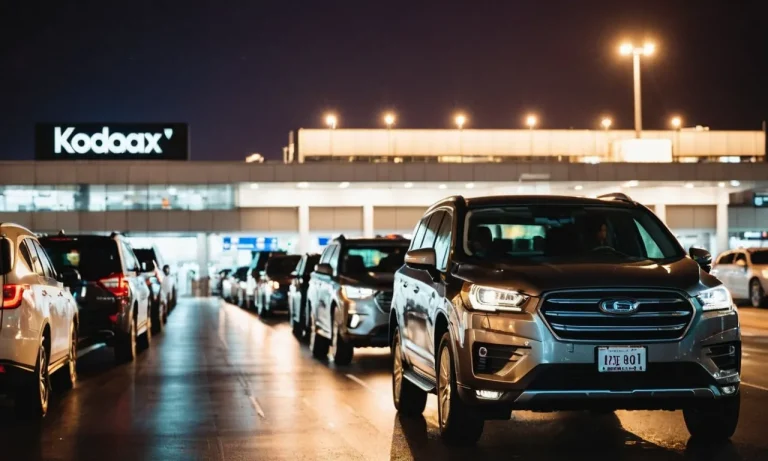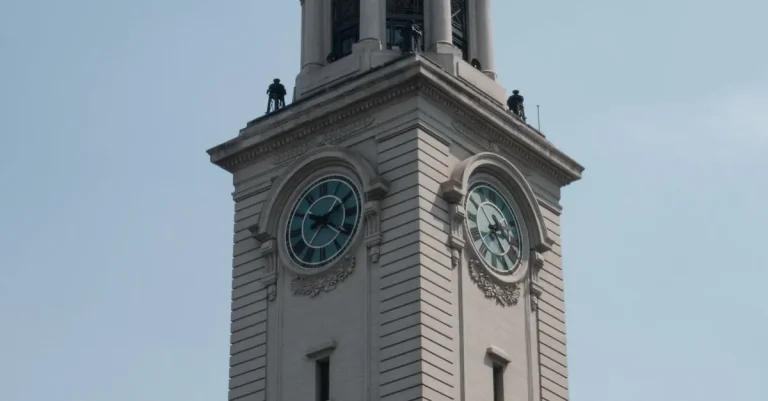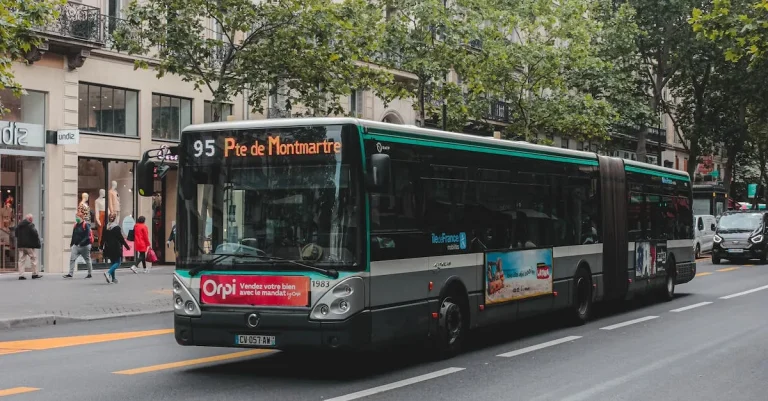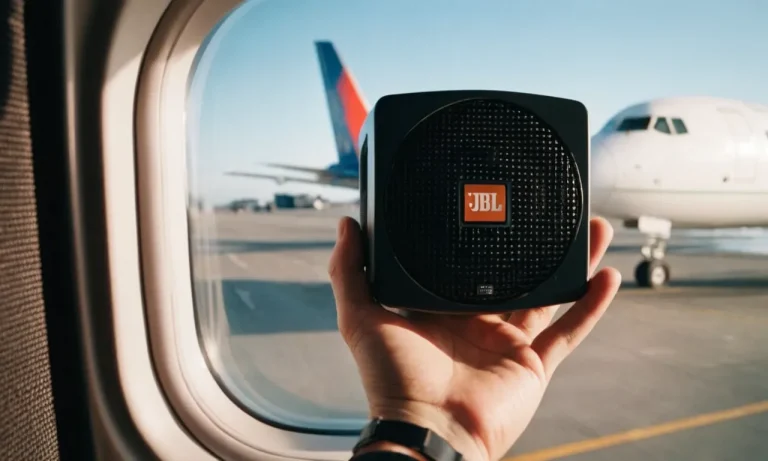Getting pulled over for a traffic violation is never a pleasant experience. As you sit anxiously waiting for the police officer to approach your vehicle, one of the many thoughts racing through your mind may be “Can the officer wait to issue me a ticket?”.
Understanding the time limits police have for issuing citations can help you know what to expect if you do get pulled over.
If you’re short on time, here’s a quick answer: In most states, there is no set time limit for when a police officer must issue a ticket after a traffic stop. However, any substantial delay could potentially invalidate the ticket or the very process. How? Well, regardless of how long the police officer took to write the ticket, once they hand it to you, you are free to go and the police officer can’t take more of your time.
Laws Regarding Time Limits for Issuing Tickets Vary by State
When it comes to issuing traffic violation tickets, there is no universal time limit that applies to all states in the United States. Each state has its own specific laws and regulations regarding the timeframe within which police officers can issue tickets to drivers who have committed a traffic violation.
It is important for drivers to be aware of these time limits to understand their rights and responsibilities in such situations.
No Universal Time Limit
Contrary to popular belief, there is no set universal time limit for police officers to issue a ticket after a traffic violation has occurred. The time limit can vary significantly from one state to another.
Some states have strict regulations that require tickets to be issued immediately at the scene of the violation, while others have more lenient timeframes that allow officers to issue tickets within a certain number of days after the violation.
Ranges from Immediate to 30 Days
The time limit for issuing a ticket after a traffic violation typically falls within a range of immediate issuance to up to 30 days.
In states with immediate issuance laws, police officers are required to issue a ticket on the spot when they witness a traffic violation.
This ensures that drivers are held accountable for their actions right away. On the other hand, states with longer timeframes allow officers to issue tickets within a specified period, usually ranging from a few days to a month after the violation.
This gives officers a reasonable amount of time to gather evidence and properly document the violation before issuing a ticket.
Exceptions for DUI/DWI Violations
It’s important to note that there are often exceptions to these time limits when it comes to DUI/DWI violations.
Due to the seriousness of these offenses and the potential danger they pose to public safety, many states have stricter regulations in place.
In some states, officers have more time to issue a ticket for DUI/DWI violations compared to other traffic violations. This allows for thorough investigations and the collection of necessary evidence, such as blood alcohol concentration test results, before charging the offender.
It is crucial for drivers to familiarize themselves with the specific laws and regulations in their state regarding the time limits for issuing tickets after traffic violations. This knowledge can help drivers understand their rights and ensure that they are treated fairly in such situations.
What Happens If There Is a Significant Delay?
When it comes to issuing a traffic ticket, there is usually a timeframe within which law enforcement officers must do so. However, there are instances where there may be a significant delay in issuing a ticket after a traffic violation has occurred.
In such cases, several factors come into play to determine the consequences for the driver.
Possible Dismissal Due to Statute of Limitations
One potential outcome of a significant delay in issuing a ticket is the possibility of it being dismissed due to the statute of limitations.
Each jurisdiction has its own set of laws that dictate the time frame within which a ticket must be issued after a traffic violation.
If this timeframe has expired, the ticket may be deemed invalid, and the driver may be able to have it dismissed.
It’s important to note that the statute of limitations varies depending on the jurisdiction and the specific offense. For example, some states may have a shorter statute of limitations for minor traffic violations compared to more serious offenses.
Therefore, it’s crucial for individuals to familiarize themselves with the laws in their particular jurisdiction.
Burden on Driver to Prove Prejudice
In cases where there is a significant delay in issuing a ticket, the burden may fall on the driver to prove prejudice resulting from the delay.
This means that the driver would need to demonstrate that the delay in issuing the ticket has caused them harm or prevented them from mounting a proper defense.
Proving prejudice can be challenging, as it requires presenting convincing evidence to support the claim.
It’s worth noting that the burden of proof may vary depending on the jurisdiction. Some states may place a higher burden on the driver, requiring them to show clear and substantial prejudice, while others may have a lower burden of proof.
Consult Local Traffic Law Attorney
Given the complexities and variations in traffic laws across different jurisdictions, it is advisable for individuals facing a significant delay in the issuance of a traffic ticket to consult a local traffic law attorney.
These legal professionals have in-depth knowledge of the specific laws and regulations in their area and can provide guidance on the best course of action.
By seeking legal counsel, individuals can better understand their rights, potential defenses, and any options available to them regarding the delayed ticket.
Additionally, an attorney can help navigate the legal process and ensure that the individual’s rights are protected throughout.
It’s important to remember that the information provided here is general in nature and may not apply to every situation. Traffic laws can vary significantly, so it’s always best to consult with a qualified professional who can provide advice tailored to your specific circumstances.
Factors That May Lead to Delayed Ticketing
Conducting Investigation
One of the factors that may contribute to a delay in issuing a traffic ticket is when the police officer needs to conduct a thorough investigation.
This typically occurs when there are multiple parties involved in the incident or if there are conflicting accounts of what happened.
The officer may need to gather evidence, speak to witnesses, or review surveillance footage before determining whether a ticket should be issued. This investigative process can take time, especially if the incident occurred in a busy area where there may be limited resources available.
Awaiting Results of Sobriety Testing
In cases where the police officer suspects that the driver may be under the influence of alcohol or drugs, they may decide to conduct sobriety testing. This can include breathalyzer tests or field sobriety tests.
The results of these tests may not be immediately available, especially if the officer needs to transport the driver to a testing facility or if there is a backlog of cases awaiting testing.
In such situations, the ticket may be delayed until the results are obtained and can be used as evidence.
Verifying Driver Identity and Status
Another factor that can contribute to delayed ticketing is the need for the police officer to verify the driver’s identity and status.
This is particularly important in cases where the driver does not have proper identification or if there is reason to believe that they may be using a false identity.
The officer may need to wait for additional information from the driver, such as their driver’s license or proof of insurance, before proceeding with issuing a ticket. This verification process can take time, especially if the driver is uncooperative or if there are discrepancies in the information provided.
Officer Discretion
Ultimately, the decision to issue a traffic ticket lies with the police officer’s discretion. While they are responsible for enforcing traffic laws, they also have the authority to exercise judgement and determine the appropriate course of action in each situation.
There may be instances where the officer decides to issue a warning instead of a ticket, or they may choose to delay ticketing for other reasons.
This could be influenced by factors such as the driver’s behavior, their driving history, or the circumstances surrounding the violation.
It is important to note that officer discretion can vary and there is no set timeframe for issuing a ticket.

Steps to Take If You Receive a Delayed Citation
Note Details About the Incident
Receiving a ticket for a traffic violation can be frustrating, especially if it comes long after the incident occurred.
However, it’s important to stay calm and take the necessary steps to address the situation. The first thing you should do is carefully note down all the details about the incident.
This includes the date, time, location, and any other relevant information. Having accurate and detailed notes will be helpful when discussing the situation with a traffic lawyer or when disputing the citation in court.
Consult Traffic Lawyer Regarding Options
When you receive a delayed citation, it’s advisable to consult a traffic lawyer to understand your options. A traffic lawyer has in-depth knowledge of traffic laws and can guide you through the legal process.
They can review the circumstances surrounding the delayed ticket and provide you with the best course of action. They may be able to identify any potential legal defenses or negotiate with the authorities on your behalf.
It’s important to choose a reputable and experienced traffic lawyer who specializes in handling such cases.
Request Court Hearing to Dispute
If you believe that the delayed citation is unjust or if you have valid reasons to dispute the ticket, you have the right to request a court hearing. This will provide you with an opportunity to present your case and challenge the citation.
When requesting a court hearing, it’s important to follow the proper procedure and submit the required documentation within the specified timeframe.
A traffic lawyer can assist you in preparing your case and representing you in court, increasing your chances of a favorable outcome.
Remember, it’s crucial to take prompt action when you receive a delayed citation. Ignoring or delaying your response can have serious consequences, including increased fines or even a suspension of your driver’s license.
By noting down the incident details, consulting a traffic lawyer, and requesting a court hearing if necessary, you can effectively address the situation and protect your rights.
How to Avoid Getting Pulled Over in the First Place
Getting pulled over by the police can be a stressful experience, especially if it results in a traffic ticket.
To minimize the chances of being pulled over, it’s important to follow all traffic laws and speed limits, ensure your vehicle registration is current, and drive defensively while limiting distractions.
Follow All Traffic Laws and Speed Limits
One of the most effective ways to avoid getting pulled over is to simply obey all traffic laws and speed limits.
This means stopping at red lights and stop signs, using your turn signals when changing lanes or making turns, and maintaining a safe and legal speed.
By being a responsible and law-abiding driver, you significantly reduce the likelihood of catching the attention of law enforcement.
Ensure Vehicle Registration is Current
It’s essential to keep your vehicle registration up to date. Driving with expired registration not only puts you at risk of getting pulled over, but it can also lead to additional fines and penalties.
Make it a habit to check the expiration date on your registration and renew it before it expires.
Doing so will help you avoid unnecessary encounters with law enforcement.
Drive Defensively and Limit Distractions
Driving defensively means being aware of your surroundings, anticipating potential hazards, and making safe decisions on the road. Avoid aggressive driving behaviors such as tailgating or weaving in and out of traffic.
Additionally, limit distractions in the car, such as using your phone, eating, or engaging in other activities that take your attention away from the road.
By staying focused and driving defensively, you can reduce the chances of attracting the attention of law enforcement.
Conclusion
In most cases, there are no set limits on how long police can wait to issue a ticket after stopping a driver. While substantial delays could potentially invalidate a citation, the burden is generally on the driver to prove they were unfairly prejudiced.
Knowing your state’s laws and working with an experienced traffic attorney can help you understand your rights if you do receive a delayed ticket.
But above all, practicing safe driving habits is the best way to avoid getting pulled over in the first place.






